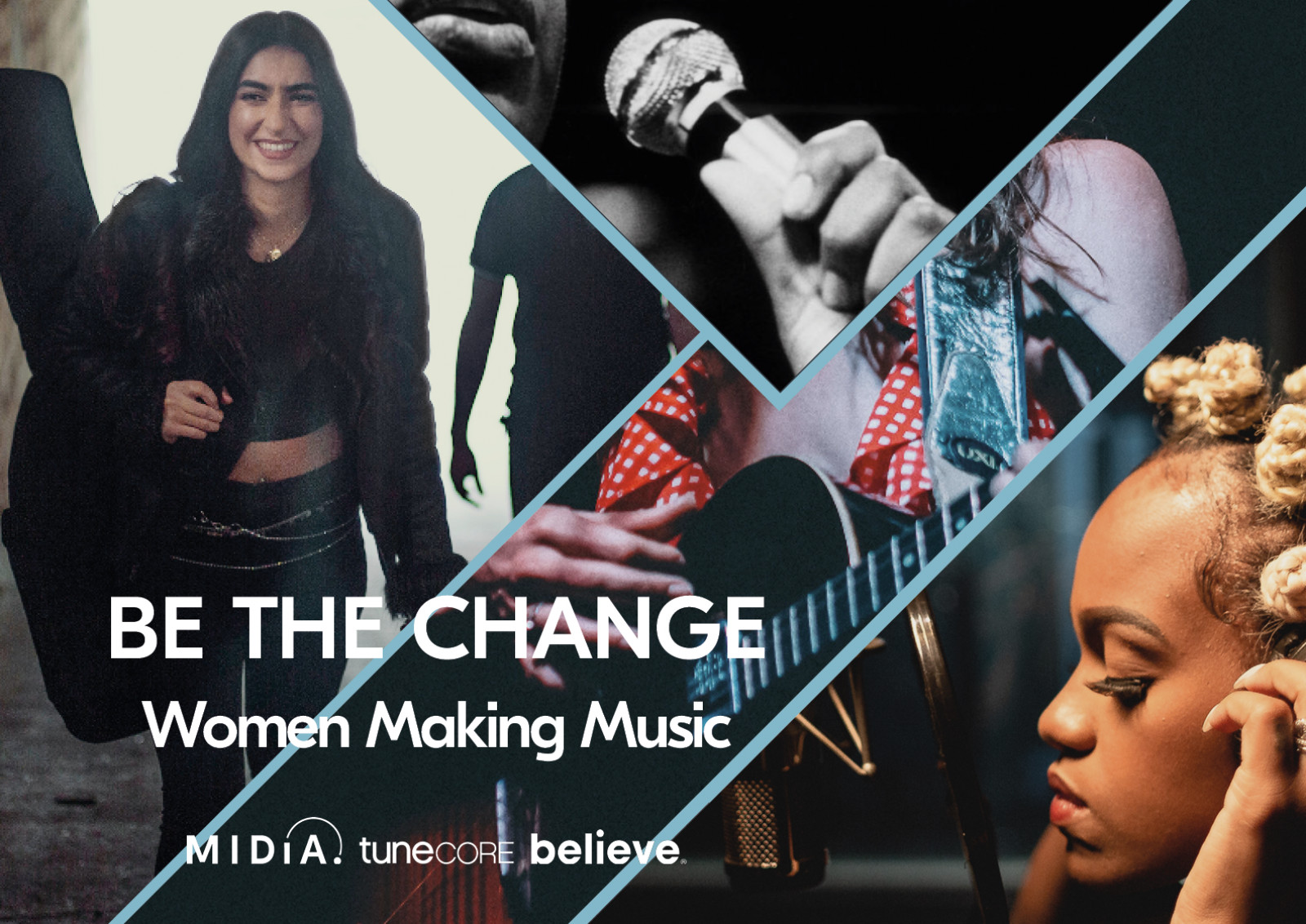Women Making Music study confirms music industry power dynamics, objectification
MIDiA and TuneCore/Believe have released a new study on women creators that highlights the challenges, experiences, and ambitions in today’s music industry.

The report, BE THE CHANGE: Women Making Music 2021, collates the views of 401 of diverse female creators – artists, songwriters, producers and DJs at all stages in their careers and all navigating their way through a complex, male-dominated industry.
The study also commemorates Women’s History Month.
Many female creators, when asked what they thought has changed in recent years, agreed that transparency and discourse have improved, but specific material changes remain harder to pin down.
Phrases such as “tokenism” and “lip service” were used to describe some of the current changes. The report also sets out priorities for progress based on responses from the women creators
Highlights
● Gendered expectations have skewed recognition and reward in the music industry: of 401 women creators around the world, 81% think that it is harder for female artists to get recognition than male artists
● Linked to this is the fact that there are not as many female role models for independent creators (81% agree, 49% ‘agree strongly’)
● Almost two-thirds of female creators identified sexual harassment or objectification as a key challenge, making it by far the most widely cited problem
● Sexualization and objectification are a consequence (or symptom) of unbalanced power dynamics, as shown by the ‘big three challenges’: ageism (identified by 38%), lack of access to male-dominated industry resources (36%), and lower pay (27%)
● These major challenges are symptomatic of deeper issues of systemic male dominance permeating industry attitudes and behaviors – over 90% of respondents said that they had experienced unconscious bias – nearly half of them frequently
● Music composition, production, and sound has long been connected primarily with men, so it is no surprise that the majority of female creators (63%) feel excluded from the composition and production, which makes this aspect of music creation highly ‘genderized’
● Although the overall representation of women in society has increased over the past few decades, 84% of women still feel that there exists a perception that women are expected to take on the primary role of parenting duties. The music industry wants female artists to be young – partly a symptom of the industry’s youth obsession, but also so that women become successful before they are presumed to decide to take on the role of motherhood
● To bring more female creators into the industry, women want changes to come from within organizations and from leaders across the music industry through diversity, policies and culture, with 42% stating this as a ‘top 3’ reason to encourage more women into the industry. Meanwhile, 38% of female creators want to see this organizational change underpinned by legislation
● The most practical starting point is in female-friendly resources and safe work spaces (34%) and 35% women creators want more change to come from learning and shared experiences, in the form of coaching and mentoring
Srishti Das, MIDiA consultant and one of the co-authors of the report said: “Men have an important part to play in resolving the gender gap and being inclusive of all genders is where this begins. Ultimately, mixed-gender work environments will benefit from the separate and diverse skills of different genders – this seems to be the key message from women creators.”
“When I discovered that only 28% of TuneCore artists are female, I was surprised,” said Andreea Gleeson, Chief Revenue Officer and Co-Head of TuneCore. “While that’s better than the industry standard which indexes around 11%, it’s still not good enough. We partnered with MIDiA to figure out, when the barriers to entry are low, why then are women still so grossly underrepresented? The study reveals the main reasons behind why female creators feel unsupported and identifies key areas of improvement. It arms us with the information we need to do better. “
Mark Mulligan, managing director at MIDiA added: “The objective of the study was to drive awareness to the issues, uncover the ‘why’, and inspire the industry to move forward with meaningful change.
“The issues, challenges and experiences highlighted in this report are not “women’s problems” to be solved just by women in the music industry. The findings of this study articulate a systemic inequity in the music industry today, requiring thoughtful consideration, commitment to change and courageous action. This is required not of any one faction of the industry, or by women alone, but by all the industry’s organisations and constituents.”
Women have sharper senses than our men. May the sisters also reap more fellowship.